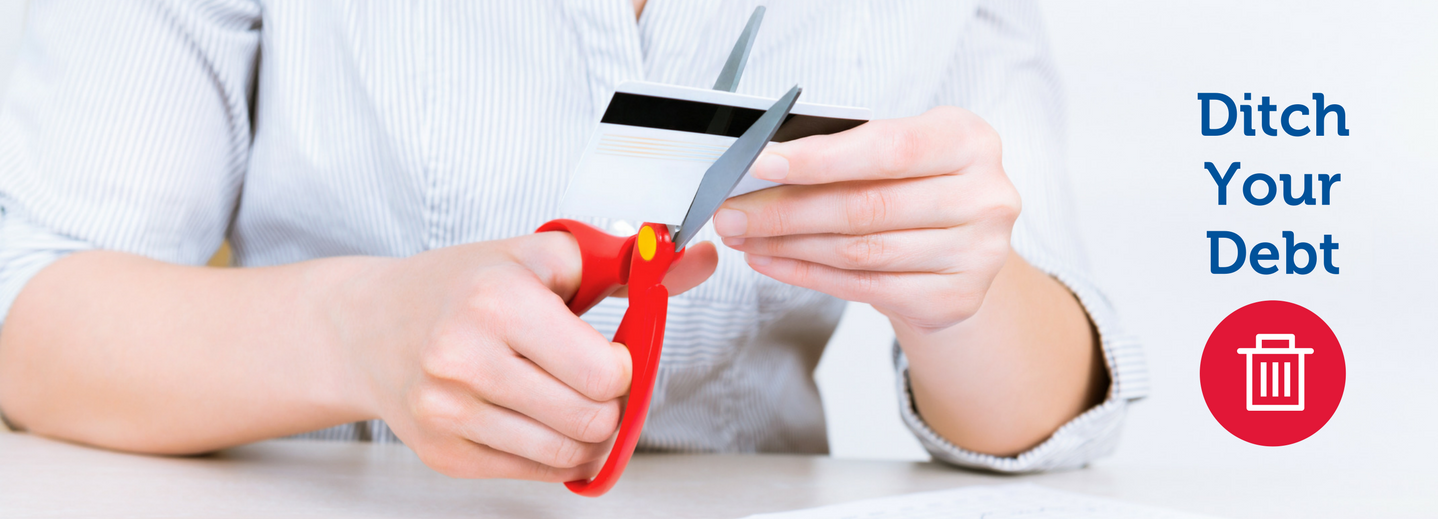Ditch Your Debt

Americans are carrying $3,827,200,000 of consumer debt…how much of that belongs to you? Debt can escalate very quickly or accrue slowly over time. Either way, it can get really out of control; getting back on track means changing your spending behavior and creating new habits.
Big Picture Snapshot
Sit down and make a list of all of your monthly obligations and total balances. Now list all your sources of income. Then, do the math! Are you surprised at how much or how little you have left to spend? Now, estimate how much you spend on essentials such as groceries, transportation expenses, clothing, dues, etc. That amount left for spending just got a little smaller, right? Keep this in mind when you are spending money on things you really don’t need.
Have a Goal
What do you want to accomplish this month or this year? You might want to focus on paying off your credit cards one at a time or even planning a summer vacation with your family. Whatever your goal is, it has a dollar amount and that’s what you should be trying to allocate for in your budget.
If you need to focus on your debt, it might make more sense to convert revolving debt (credit cards) to an installment loan (fixed monthly payments). Many times, knowing exactly how much you need to pay each month, when the loan will be paid in full and saving money on interest can give you a solid jump-start in ditching your debt! Check out our Debt Consolidation Calculator.
Cash Only
Spending cash actually stimulates the human brain the same way something unpleasant does – like pain and sadness. When you use actual money you are much more aware of how much you spend and how frequently you’re spending your hard earned cash. What better way to hinder your impulse buys by forcing awareness?
Give yourself an allowance for things you might need or want every day. When you skip an indulgence (*ahem* your favorite $5 blended coffee) and know you are saving money, guess what – that stimulates your brain in a positive way! Which will, of course, make you want to save even more. Saving money = happiness
Queue inner dialog: When did my credit union become a psychologist?
Finally – Don’t Give Up
Even if it didn’t take long to get into debt – it can take time getting out. Remember, debt is money you don’t have; but, you need to actually have the money to repay the debt. The process requires patience, planning and sometimes even some sacrifice. Focus on smaller goals one at a time – pay off one card at a time, starting with smaller balances so you actually feel like you’re getting somewhere.
Stay focused on your new healthy spending habits. Simply, don’t spend money on what you can’t afford – even small purchases. A little delayed gratification never hurt anyone.
By CAMPUS USA